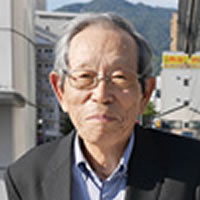Japan’s Energy Conservation: Useful in Developing Countries! - PREX Island
Lecturers / Specialists
Japan’s Energy Conservation: Useful in Developing Countries!
 |
IKEUCHI Energy Project Representative Mr. Yoshiharu Ikeuchi |
For this training program, we asked Mr. Yoshiharu Ikeuchi (IKEUCHI Energy Project Representative) to be our training instructor and program leader. We asked him to lecture on energy conservation promotion methods used in Japan’s factories and buildings, and had him instruct the training participants in creating their own action plans.
Now that the training has ended, please tell us about how you think it was significant.
Is Japan’s promotion of energy conservation unique to the country?
Energy conservation measures are an extremely important issue in addressing global energy issues and climate change. Energy conservation measures in developing countries are lagging behind due to lack of technology, awareness, and other such issues. Japan’s energy conservation measures have been producing steady results after experiencing two oil crises. Government and private sectors have accumulated experience and know-how. I think spreading this knowledge will be useful in promoting energy conservation globally.
Japan’s energy conservation measures after the oil crises were conducted mainly by large corporations, particularly those in the manufacturing sector. Companies established energy management departments at their head offices, which became the central point from which they communicated with energy management departments of their branch offices and factories. From the front lines, they extracted problem areas and improvements that would lead to energy conservation. Then, they expanded these measures to apply to the entire company as a mechanism of promoting energy conservation.
Methods to discover problem points, such as energy assessment tests and small-group activities, were effective in promoting energy conservation. Some may think that “small-group activities” is unique to Japan, and that it would be difficult to implement in other countries. However, just as “5S” has spread worldwide, energy conservation promotion from small-group activities is spreading in a number of countries through the efforts of JICA projects and others. Having visited countries like India, Bulgaria, and Kazakhstan as an energy conservation specialist and given instruction on energy conservation, I feel that acquiring energy assessment technology and engaging in small-group activities are effective methods for promoting energy conservation. Some countries have progressed in energy conservation through installing educational equipment for energy conservation assessment and training energy-conservation assessment experts. In India and Vietnam, projects are underway to train energy supervisors.
What is the key to progress in energy conservation?
To promote energy conservation, it is effective to upgrade power equipment in buildings and companies to the latest devices with energy-saving functionalities. The second key point is to undergo a factory assessment, pinpoint the problems, improve upon them, and manage energy use (physical units). These two points are key.
To promote energy conservation, collaboration between public and private sectors is necessary.
The countries that participated in this training course have energy-conservation laws and other laws that promoted energy conservation, but they don’t have detailed guidelines like those in Japan. In Japan, there are energy conservation laws as well as standards that corporations must adhere to, which are set out in detail in the guidelines. Energy conservation is guaranteed if you follow these guidelines, but I don’t think they will be feasible if they are too stringent.
Training is the entry point!
The duration of the visitation training was roughly one month. The participants faced a variety of challenges in energy conservation, so I had them look at a variety of energy-conservation case studies in Japan. I think it would be difficult to bring Japan’s legal system and corporate efforts straight into one’s own country. However, I think it’s possible to gain some hints from countries in similar situations by mutually sharing information with fellow participants from different countries. Training is not about providing answers to the participant’s challenges; it is an entry point where participants discover the direction in which they are headed. Through this training course, I hope that participants can return to their home countries and discover even one area that they can begin working on, and I hope that they will make persistent efforts while gaining the understanding of those around them.
- Date : December 17, 2016
- Name : Yoshiharu Ikeuchi
- job name : Representative


